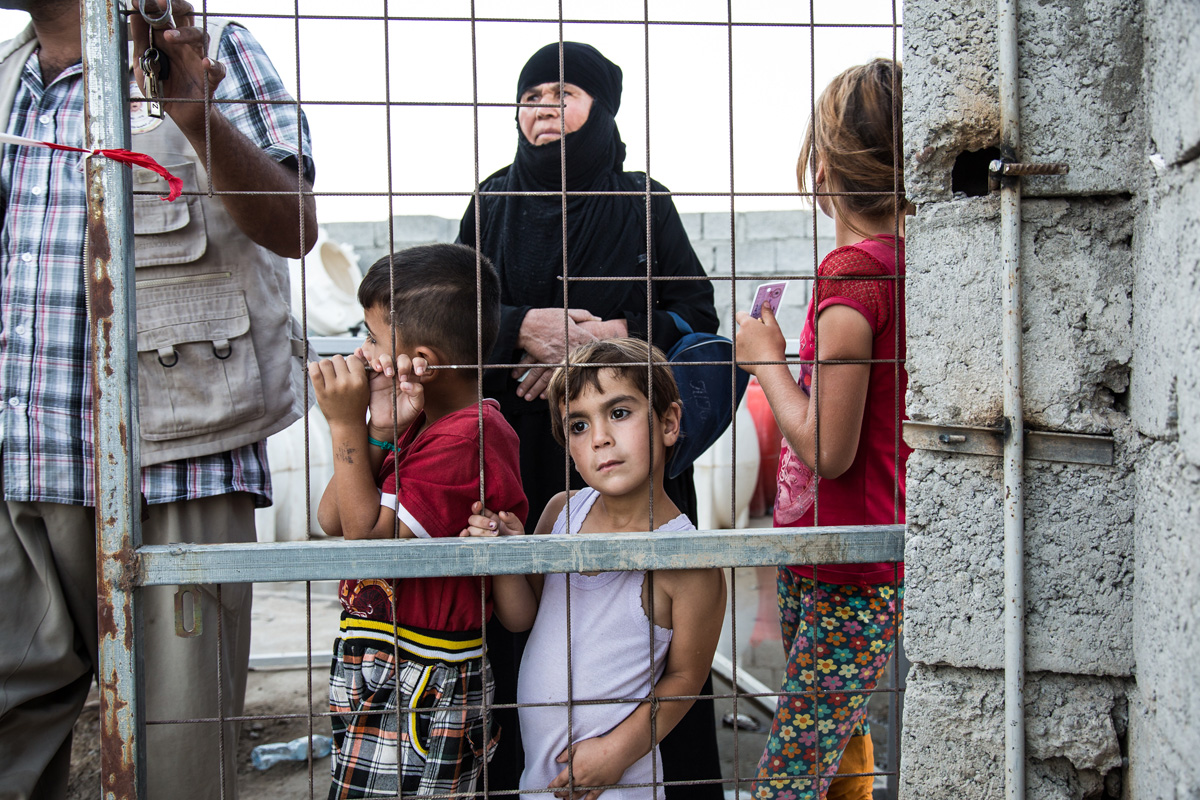Blog Home > early warning project
-

Atrocities Early Warning Q&A: Bridget Conley-Zilkic
November 8, 2014
Bridget Conley-Zilkic is research director at the World Peace Foundation and assistant professor of research at Tufts University's The Fletcher School. From 2001 to 2011, she worked on issues related to contemporary genocide at the U.S. Holocaust Memorial Museum.
-

Shifting Risks in Burkina Faso
November 2, 2014
The man who ruled Burkina Faso for 27 years fell from office a few days ago, and the contours of the transition that will follow remain unclear. The Early Warning Project's statistical risk assessments suggest that this tumult has roughly doubled the risk of an onset of state-led mass killing in Burkina Faso for the next year or more, likely pushing it into the top 30 when those estimates are next updated in early 2015. The several area experts we consulted in the past 48 hours, however, all indicated that this worst-case scenario was highly unlikely to happen.
-

Ebola’s Potential Effects on the Risk of Mass Atrocities in Guinea
October 16, 2014
One of the countries hit hardest by this year's Ebola epidemic, Guinea, is also one of the countries most susceptible to an onset of state-led mass killing, according to our statistical risk assessments. This conjunction is not entirely accidental. And, while the Ebola epidemic almost certainly won’t lead directly to mass atrocities, the effects the epidemic is having on Guinea’s political economy could indirectly increase that risk in coming months.
-

Why Isn’t State-Led Mass Killing Occurring in Russia’s North Caucasus?
October 8, 2014
In the 1990s and early 2000s, the Russian government defeated a separatist insurgency in Chechnya with a scorched-earth campaign that killed thousands of civilians and displaced hundreds of thousands more. Despite that ostensible victory, Russia continues to battle separatist insurgents in its North Caucasus region, of which Chechnya is a part.
-

Zimbabwe Simmers
October 2, 2014
This week, the International Crisis Group issued a new briefing on Zimbabwe that portrays a country on simmer. "Zimbabwe is an insolvent and failing state," writes ICG Africa Program director Comfort Ero, "its politics zero sum, its institutions hollowing out, and its once vibrant economy moribund." Without significant changes of course in economic policy and elite behavior, the report warns, the risk of a sharper crisis and deeper collapse will continue to grow.
-

Occupy Central and the Rising Risk of New Mass Atrocities in China
September 29, 2014
Activists have massed by the thousands in central Hong Kong for the past several days in defiance of repeated attempts to disperse them and menacing words from Beijing. This demonstration and the wider Occupy Central movement from which it draws poses one of the sharpest public challenges to Communist Party authority since the Tiananmen Square uprising 25 years ago. In so doing, it clearly raises the risk of a new mass atrocity in China.
-

Rising Risk of State-Led Mass Killing in China’s Xinjiang Region
September 15, 2014
Xinjiang is China's westernmost region, far removed from Beijing and officially known as the Xinjiang Uyghur Autonomous Region (XUAR). Most residents of the XUAR are Uyghurs, who are Turkic, speak their own language, and are largely Muslim. While the region has periodically been under Chinese rule for centuries, the people are culturally more similar to their Central Asian neighbors. Separatist activity and ethnic tension is not uncommon, but historically there have only been a few incidents of mass violence.
-

Will state-led mass killing occur in Yemen?
September 12, 2014
We recently asked our Expert Opinion Pool, "Before 1 January 2015, will an episode of state-led mass killing occur in Yemen?"
-

Exploring the Causes of State-Led Mass Killing in Egypt
August 26, 2014
A few days ago, the Monkey Cage Blog ran a guest post by sociologist Amy Austin Holmes that wrestled with the question of why Egyptian security forces perpetrated a massacre in broad daylight at Rabaa a year ago. The Rabaa massacre is just one part of a larger episode of state-led mass killing that began in Egypt after the 2013 coup and continues today. As Holmes describes,
-

Atrocities Early Warning Q&A: Ben Goldsmith
August 15, 2014
Ben Goldsmith is an associate professor of political science at the University of Sydney who studies international conflict, international public opinion, and U.S. foreign policy. In 2010, Ben began work on forecasting genocide and politicide. I first met him that year, in New Orleans at the annual meeting of the International Studies Association. We talked over lunch about statistical forecasting of rare and calamitous political events and have stayed in touch ever since. It's been great to see his project develop, and I'm glad to be able to spotlight it here.


